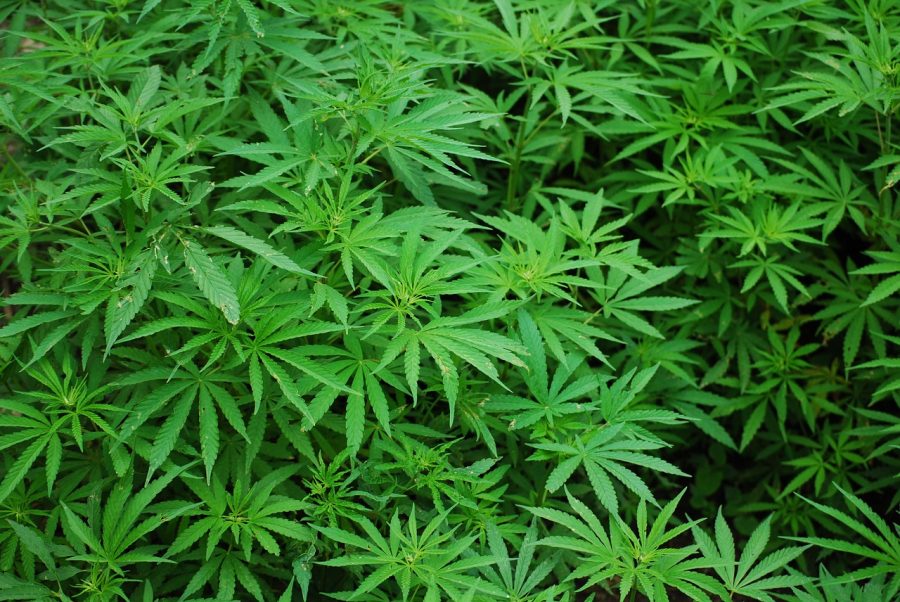Alexander & Reese: It’s Time for Utah to Decriminalize Marijuana
December 29, 2020
If you have ever lived in a college dorm or gone to an outdoor concert, the smell of marijuana tends to drift around a lot. Around 52% of Americans have tried marijuana at least once, yet 40,000 people are in prison for marijuana charges in America. This result is due to racist laws used to over incarcerate communities of color. Now, 44 states have some form of legalized or decriminalized marijuana, which leads to a conflict between federal, state and local law.
Recent talks about decriminalizing weed have made their way to the House of Representatives, in the form of the MORE Act, which the House passed on Nov. 20. The bill aims to decriminalize cannabis and expunge low-level offenses of marijuana possession, which is an incredible step forward in giving back to communities who were devastated by the War on Drugs. If cannabis is successfully decriminalized with the MORE Act, then mass incarceration rates could be considerably affected, in turn bringing major changes and reforms to the criminal justice system and society as a whole.
Cannabis isn’t inherently bad. But thanks to Harry Anslinger — who first criminalized the drug in the 1930s to salvage his own career — cannabis was rendered dangerous and deadly. Anslinger’s work reinforced negative stereotypes of people of color, and through racist rhetoric, Anslinger was able to produce exaggerated themes of weed and its users. However, as the MORE Act navigates its way through Capitol Hill, marijuana still has some clear opponents. Utah’s own representatives, Republicans Rob Bishop and John Curtis, both voted no on the bill, and Democrat Ben McAdams voted yes while Republican Chris Stewart did not cast a vote. Over 10,000 Utahns have already demonstrated their support by activating their own medical marijuana cards after the passage of Prop 2 in 2018. Through the urging of our representatives to vote for the MORE Act, Utah can successfully decriminalize cannabis and lead the way to restructuring the racial connotations of drug use.
The criminalization of marijuana has been used to target racial minorities. People of all races consume marijuana at similar rates, but Black Utahns are 4.9% more likely to be arrested for marijuana possession than white Utahns. Decriminalizing marijuana must include provisions to expunge marijuana charges for nonviolent offenders. Without the expungement, formerly incarcerated people that look for housing and employment following their time in prison will face more challenges. President-elect Biden is in favor of these provisions to expunge charges, stating in the summer of 2020, “Getting caught for smoking marijuana when you’re young surely shouldn’t deny you the rest of your life, being able to have a good-paying job or a career or a loan or an ability to rent an apartment.” No person should be denied housing or a job for a crime that was created to discriminate and incarcerate racial minorities. States with recreational marijuana have differed in how records should be expunged, but Utah should follow in the steps of California, Illinois, New Jersey and New York by making it automatic. This provision will streamline the process of regaining employment and shelter for those our state has unfairly put behind bars.
Not only will the MORE Act make life easier for those devastated by the criminalization of cannabis, but mass incarceration rates might noticeably change. The MORE Act has the power to expunge the records of almost 40,000 people in the United States for marijuana possession, who were mostly non-violent offenders put in prison for trying to make a living — a notable fact, considering the number of white men who are able to profit off selling weed while Black men sit in jail for using it. Instead of investing our resources into the punishment of these low-level offenses, we could be directing our efforts towards community-driven initiatives to help reduce crime and racial disparities — like Switzerland’s radical drug policies. This change could, in turn, save taxpayers the cost of keeping these low-level offenders imprisoned, and reforms in our society and the criminal justice system could be radically changed.
The decriminalization of cannabis is essential in breaking down negative racial stereotypes, encouraging a fairer criminal justice system and reforming society to accepting the harmless drug. Through the decades, marijuana users have endured incredibly harsh condemnations, and even in 2020, the drug’s usage remains in debate. By urging Utah representatives to see the good in decriminalizing marijuana, we can push the state to accept the benefits of reduced mass incarceration, reduced racial stereotypes and a fairer criminal justice system through community initiatives and reformative change.










Falcon • Mar 2, 2021 at 3:54 pm
Yo real talk we just need to start having marijuana peace protests. Go to a public space and smoke RESPONSIBLY as ADUTLS to set an example of what the typical pot smoker looks like. Make it like some beer fest gathering, but with marijuana to get the point across and if the cops show up just be peaceful and if we have enough people involved I’d imagine they wouldn’t arrest all of us right? 😂 But real talk we need to do these kind of things.
“One has not only a legal, but a moral responsibility to obey just laws. Conversely, one has a moral responsibility to disobey unjust laws.”
-Martin Luther King, jr